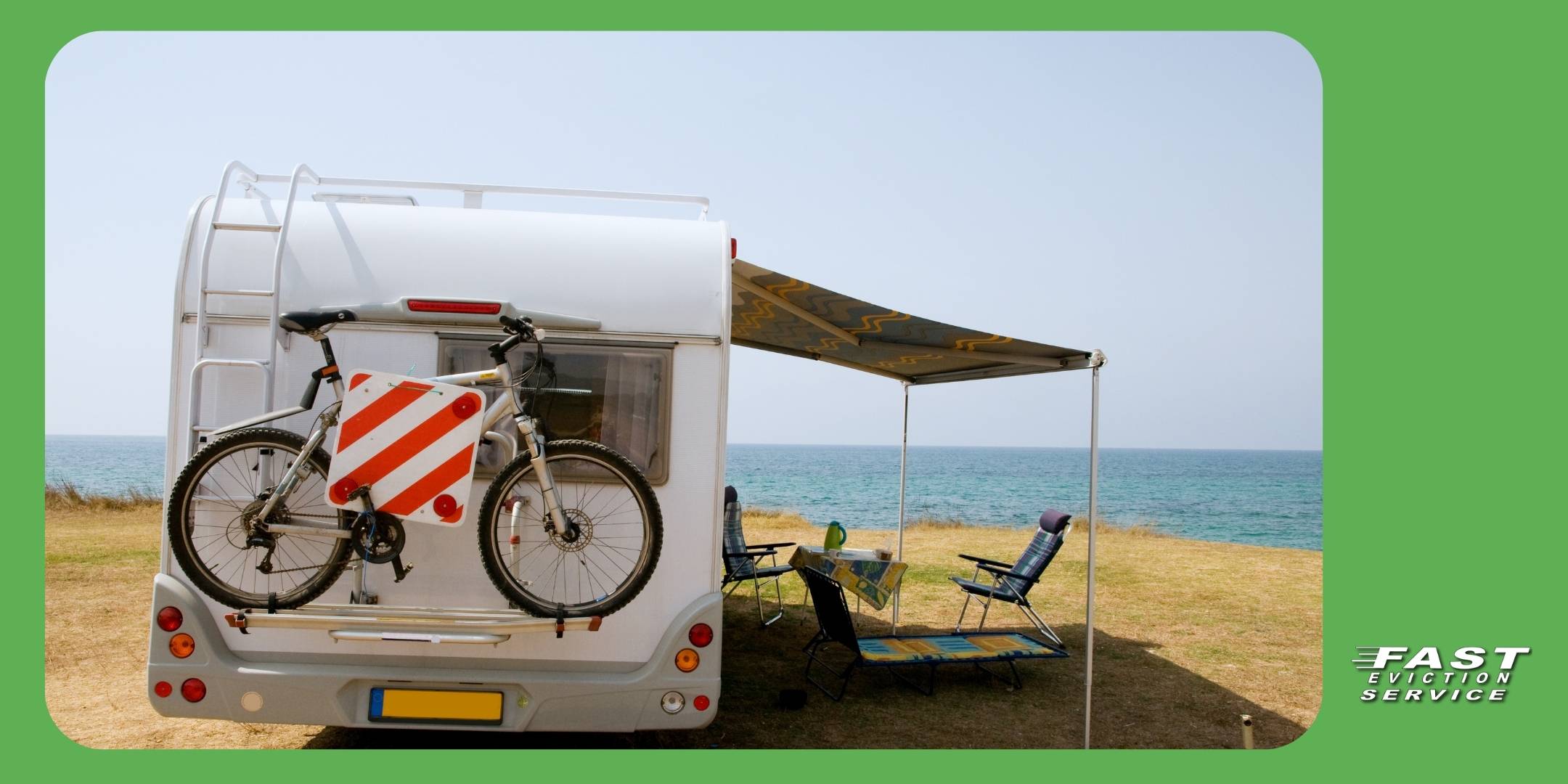The rules governing mobile home evictions are highly regulated. Civil Code Section 798 sets forth the basis (reasons) and method for evicting a resident of a mobile home park. These rules apply to both owners of the mobile home who rent space from the owner of the mobile home park and tenants who are renting the mobile home from Park Management.

This article will provide the basic reasons for eviction of a home owner/tenant from a mobile home park.
These reasons include:
- Failure of the homeowner or resident to comply with a local ordinance or state law or regulation relating to mobile homes within a reasonable time after the homeowner receives a notice of noncompliance from the appropriate governmental agency.
A Major change occurred in January of 2018 relating to evicting a homeowner and/or tenant from a mobile home park for having unauthorized persons living in the rental unit.
Civil Code Section Civil Code §798.34 was amended prohibiting Park Management from the major change in the Mobile Home Residency Law occurred in the definition of a guest. A person who has not lived or visited a mobile home resident for more than 20 consecutive days or a total of 30 Days in one calendar year shall be considered a guest and shall not be required to register with the mobile home park and the mobile home resident may not be subjected to a Notice of Termination of Tenancy for that reason.
(a) charging a fee for a guest who does not stay with the homeowner/tenant for more than a total of 20 consecutive days or a total of 30 days in a calendar year. A person who is a guest, as described in this subdivision, shall not be required to register with the management.
(b) Charging a homeowner who is living alone in the mobile home and who wishes to share occupancy of his or her mobile home with one other person may do so, and a fee shall not be imposed by management for that person. For purposes of this subdivision, a homeowner may only designate one person as his or her companion per calendar year, except in the case of the companion’s death. Park management may refuse to allow a homeowner to share his or her mobile home with a companion under this subdivision if park residency is subject to age restrictions and the proposed companion is unable or unwilling to provide documentation that the proposed companion meets those age restrictions.
(c) Charging a homeowner, a fee A homeowner for sharing his or her mobile home with any person over 18 years of age if that person is providing live-in health care, live-in supportive care, or supervision to the homeowner. Management shall not charge a fee for the live-in caregiver but may require written confirmation from a licensed health care professional of the homeowner’s need for the care or supervision, if the need is not readily apparent or already known to management.
(d) A senior homeowner who resides in a mobile home park that has implemented rules or regulations limiting residency based on age requirements for housing for older persons, pursuant to Section 798.76, may share his or her mobile home with any person over 18 years of age if this person is a parent, sibling, child, or grandchild of the senior homeowner and requires live-in health care, live-in supportive care, or supervision. Management shall not charge a fee for this parent, sibling, child, or grandchild, but may require written confirmation from a licensed health care professional of the need for the care or supervision, if the need is not readily apparent or already known to management. As used in this section, “senior homeowner” means a homeowner who is 55 years of age or older.
(e) A guest, companion, live-in caregiver, or family member under the care of a senior homeowner, as they are described in this section, shall have no rights of tenancy in the park, and any agreement between the homeowner and the guest, companion, live-in caregiver, or family member under the care of a senior homeowner shall not change the terms and conditions of the rental agreement between management and the homeowner.
(f) A violation of the mobile home park rules and regulations by a guest, companion, live-in caregiver, or family member under the care of a senior homeowner, as they are described in this section, shall be deemed a violation of the rules and regulations by the homeowner and subject to subdivision (d) of Section 798.56.
- Conduct by the homeowner or resident, upon the park premises, that constitutes a substantial annoyance to other homeowners or residents.
- Conviction of the homeowner or resident for prostitution, for a violation of subdivision (d) of Section 243, paragraph (2) of subdivision (a), or subdivision (b), of Section 245, Section 288, or Section 451, of the Penal Code, or a felony controlled substance offense, if the act resulting in the conviction was committed anywhere on the premises of the mobile home park, including, but not limited to, within the homeowner’s mobile home.
- Failure of the homeowner or resident to comply with a reasonable rule or regulation of the park that is part of the rental agreement or any amendment thereto.
In order to evict a homeowner or resident for this reason the homeowner must be given or more written seven-day notices of the violation and the homeowner’s or resident’s failure to comply over a 12 months period. The notice must specify the date, time and names of the witness(s) with specificity. However, if a homeowner has been given a written notice of an alleged violation of the same rule or regulation on three or more occasions within a 12-month period after the homeowner or resident has violated that rule or regulation, no written notice shall be required for a subsequent violation of the same rule or regulation.
- Nonpayment of rent, utility charges, or reasonable incidental service charges; provided that the amount due has been unpaid for a period of at least five days from its due date, and provided that the homeowner shall be given a three-day written notice subsequent to that five-day period to pay the amount due or to vacate the tenancy. For purposes of this subdivision, the five-day period does not include the date the payment is due. The three-day written notice shall be given to the homeowner in the manner prescribed by Section 1162 of the Code of Civil
- Condemnation of the park.
- Change of use of the park or any portion
Bottom line, mobile home tenant laws and eviction procedures are more complicated than most unlawful detainer actions. Its always best to get the help of a qualified Landlord Attorney to be certain you prevail in court and don’t get your case thrown out on a procedural matter – costing you more time and money.



